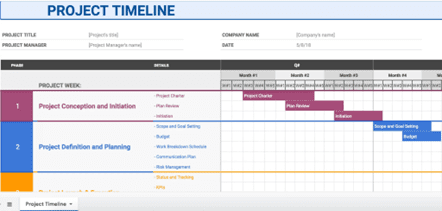When planning an eCommerce website, there are lots of things to think about. The first question you are going to have to answer is: Who is going to build it?
This is a major decision and the one that will define most of your further steps.
Hiring a freelance web developer and/or designer, or partnering with an agency are the two you should consider. I do not recommend utilizing an online DIY building platform when it comes to eCommerce unless you really know what you’re doing.
Each of these options comes with risks, and you need to be diligent and do your homework before making any decisions. You have a responsibility and need to have a solid foundation of knowledge.
Consider the following when making your decision:
Plan Your eCommerce Website’s Future Functionality
You know your business better than anyone and must know what goals you’d like to achieve with your eCommerce website – today, tomorrow, and in the future. Know the basic functionality you’ll need to achieve these goals.
It is a good idea to research your more established competitors. What does their eCommerce functionality look like? How are their conversion funnels set up? What kind of customer support do they offer? How is their navigation structured?
Here are a few points of consideration when planning your eCommerce website:
Your Shopping Cart
Well-built and configured shopping cart technology is crucial for smooth buying journeys. The shopping cart is where your customers will see the list of products they chose to buy. The cart will also connect your customers to payment gateways for them to pay for those products.
When researching your competitors, make screenshots of what you liked about their shopping cart setup, what you disliked, and why.
Most eCommerce site builders already have shopping carts built-in but they are customizable, so make sure you know what yours is going to look like.
Product Discoverability
Visitors are not going to scan through all the products on your website. Instead, they will be keen on a specific product. This means you need to have a system that helps them find products easily. The website’s navigation structure should be straightforward and lead them on the path to purchase.
Also, don’t forget to include an interactive search functionality. If you have the right resources and budget, make the search functionality as intelligent as possible. For example, you can introduce options like sorting and filtering in the search box. These will make the job easier for your customers. As a result, they may stick to your business for a longer time.
Overall user experience
A smooth user experience is key to any website’s success. Your site needs to be fast and mobile-friendly.
Make sure your site is optimized for Google Core Web Vitals. This way it will be sure to provide a good user experience and adhere to Google’s guidelines which are now part of Google’s ranking algorithm.
Your SEO Strategy
Organic search should be a major source of your marketing traffic. Nothing compares to search in terms of the volume and quality of traffic it is able to generate if you have optimized your website properly.
Find proper keywords for your website prior to launching it. Keyword research will help you define a more effective navigation, plan your product category pages, and create a more meaningful structure – all based on the actual searching patterns your target customers are using.
To group your keywords and better understand those searching patterns, give keyword clustering tactic a try. It is a great way to organize your keyword lists and structure your future site accordingly.
Take Your Brand Name Seriously
Branding can make or break any business, so spend some time defining your future brand identity.
And it all starts with the name. Make sure your business name is:
- Easy to remember
- Able to create niche associations
- Easy to type into the search box or speak to a mobile phone to navigate through voice search
Namify can help you find a cool brand name that will accomplish all of the above goals. It will also help you find a name that is available on major social media channels.
Don’t forget that your domain name will be everywhere: On your marketing creatives, social media images, product pages, etc. It is what you are going to use to set up your business email address. It is too important to take this choice lightly.
Include a Website Project Timeline
Be sure there is a timeline involved unless you’d like to take the chance that your project goes on, and on, and on. If you have a launch date in mind, you need an established timeline that includes milestones that lead to that launch date.
You also need to be part of the project, as much as the folks who build your site – don’t let anyone make you think otherwise. Remember, you know your business best. Take a vested interest in the planning, process, and preparation. But trust your team and try not to micromanage.
You can make a timeline in Google Docs which is free and shareable.
It’s a Partnership
Make sure you ‘click’ with your web developer or agency team. You will need them after launch to make ongoing changes, tweaks, additions, or to perform regular maintenance. Take some time to discuss which eCommerce website builder they are going to use and why. Make sure they understand your goals and take them seriously.
It’s somewhat like choosing a doctor – you want someone you like, a professional who can give good advice and offer their expertise when you need it. You need someone who knows you inside and out and can offer solutions quickly or areas of improvement that will ultimately lead to a profitable eCommerce website.
Choosing a web developer or agency because the price is right, is not a good idea. The more important items to consider are mentioned above. Remember, this is a partnership, and building an eCommerce website is a serious undertaking – you want an expert on your side all the way!
You can certainly choose to go long-distance with a web developer or agency, but know that this is very risky. Communicating your vision to another person is difficult enough, without a few thousand miles in between. Keeping the lines of communication open is a large part of whether or not your site build is a success.
The ecommerce industry is booming and there’s still space for newcomers. All you need is a solid plan to make that success happen for your new site.
Do you need help with your next build? Let’s chat. We can certainly build it for you but could, at a minimum, make sure you are on the path to success!


